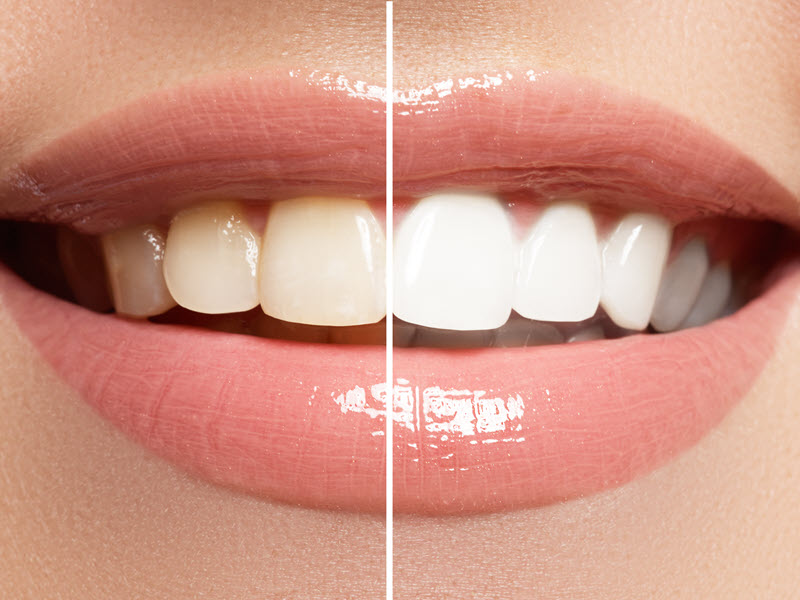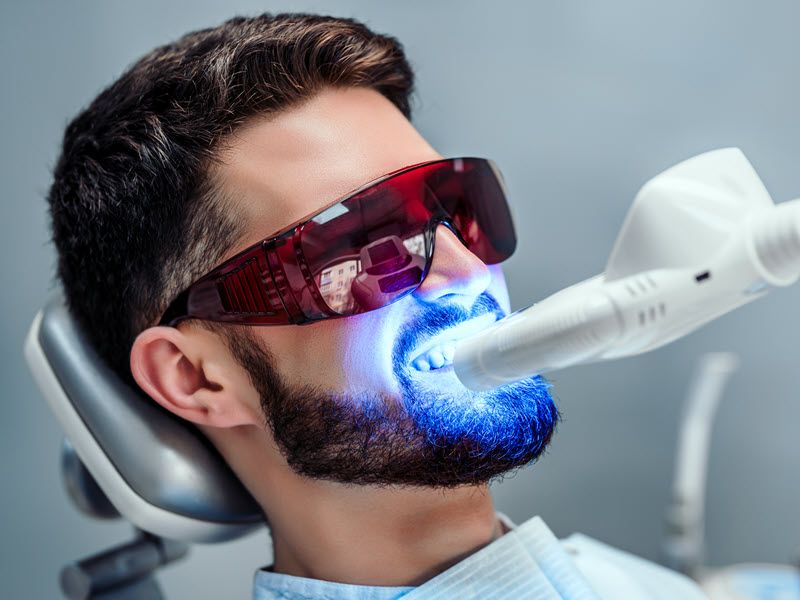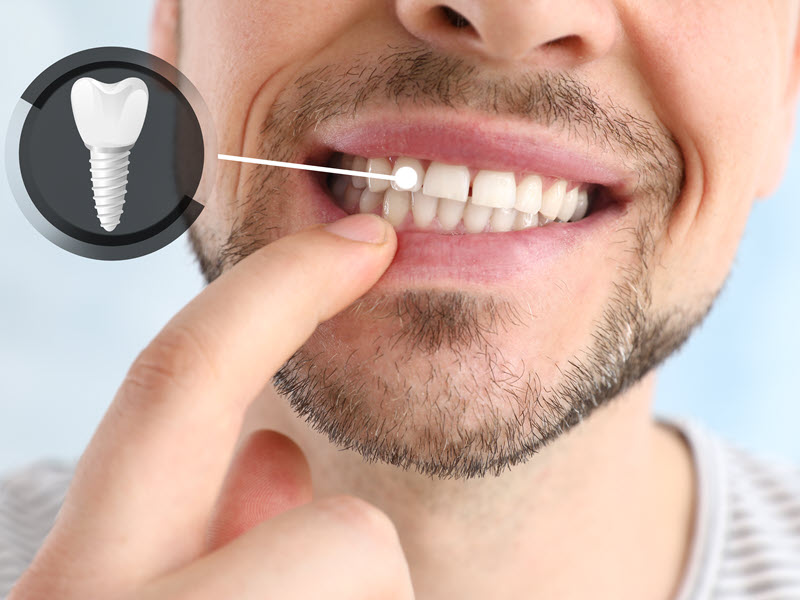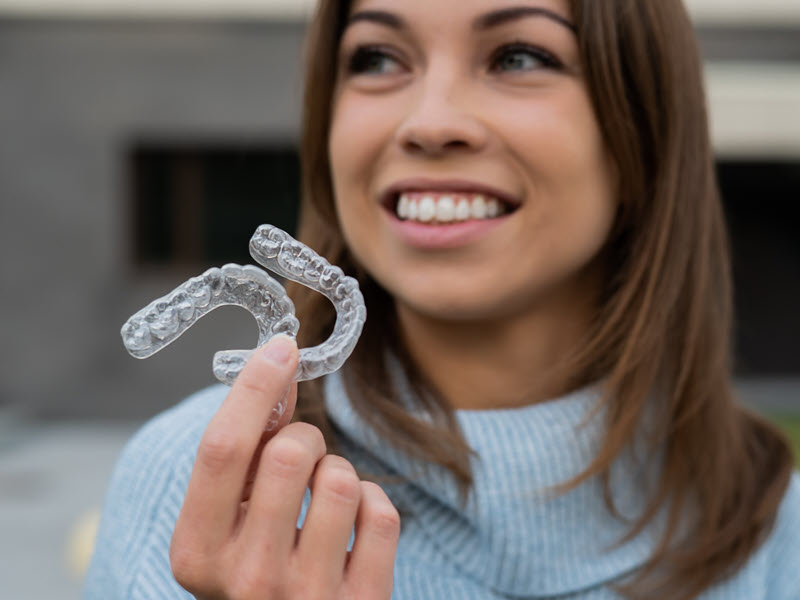What is a Dental Crown?
A dental crown is a dental restoration that completely covers a damaged tooth. It is used to restore a tooth’s function, appearance, and strengthen the overall tooth structure.
While some dental offices may recommend porcelain crowns, we normally recommend Zirconia or Full Gold crowns for our patients at our Fort Collins dental office.
This is due to the natural tooth-like color of Zirconia as well as additional benefits such as: strength,durability, longevity and the biocompatibility of the material.
Why Would I Need a Dental Crown?
In most cases, getting a crown is necessary when a tooth is damaged due to decay or an accident. The damage to the tooth is significant enough that another less complex restorative procedure – like applying a filling – won’t be effective.
Dental Crown Procedure
You’ll first need to set up a dental appointment at our office in Fort Collins. We will do a thorough dental exam to take a look at the tooth and surrounding teeth. Activities performed during this exam include:
- Taking X-rays of the tooth to check for damage and/or decay
- Check the tooth and surrounding teeth for any sign of infection or other problems
- Provide initial treatment of decay or damage
If it is determined that a dental crown is the recommended course of action, we will develop a treatment plan that typically requires two visits with our Fort Collins dentist, Dr. Murphy.
First Visit
At your first visit to get a dental crown at our office in Fort Collins, we will take 3D scans of the tooth and surrounding areas, both before and after the tooth’s preparation. This streamlined technology uses the latest in 3D scanning and printing in order to engage patients in the process and treat with confidence, by enhancing treatment predictability.
The scans then will be sent via software so that they can fabricate your personalized custom designed dental crown.
Also during this first visit, we will put a temporary crown in place to protect your tooth. This will provide adequate protection for your tooth until your next visit when the crown is applied.
Second Visit
At your second patient appointment, the temporary crown is removed and your tooth is cleaned (to remove the cement from the temporary crown). The Zirconia crown is then placed on top of the prepared tooth. Our dentist will take extensive steps to make sure that your permanent crown is a perfect fit on top of your existing tooth – and that your bite is aligned properly. Your new crown is fully in place and ready to go.
Interested in Getting a Dental Crown?
We Keep You Comfortable
We know that many people are anxious about going to the dentist. During your dental crown procedure, a local anesthetic is applied to the area around your tooth to keep you comfortable if needed. We also offer sedation dentistry options – including Oral sedation and Nitrous Oxide to keep you completely relaxed during dental procedures.
ADA Video Overview
Below is a video from the American Dental Association which details how dental crowns can protect your tooth. It covers the benefits of crowns – for example, dental bridges are usually attached to a healthy tooth, but a dental bridge can also be supported to a crown.
All about crowns from the ADA
Frequently Asked Questions About Dental Crowns
How Long Do Dental Crowns Last?
Dental crowns don't typically last a lifetime, but they can last for many years with proper dental hygiene. Crowns can last anywhere from five to fifteen years, and in some cases longer. The lifespan of a dental crown depends on the materials used, the location of the tooth, and how well you take care of your teeth.
What Are the Risks If I Don't Get a Dental Crown?
If your tooth is compromised to the extent that you need a dental crown, there are serious risks in letting the problem persist. Your damaged tooth will not improve on its own and will continue to decay and degrade over time.
Not getting a crown can lead to a cascading set of more and more serious dental issues.
A damaged tooth is vulnerable to infection and can lead to the loss of the damaged tooth - and adjacent teeth. Tooth loss comes with its own complications. Unless you get a dental implant to replace a missing tooth, your teeth may shift and bone loss in your jaw can occur.
Getting dental implants is a highly effective, but more expensive and invasive procedure than getting a dental crown.
How Much Does a Dental Crown Cost?
With Insurance
A dental crown is considered a restorative dentistry procedure. While dental insurance usually doesn't cover cosmetic dentistry procedures (like teeth whitening), most insurance companies will at least cover part of the cost of a dental crown. We work with insurance every day at our Fort Collins office. Feel free to call us with the details of your insurance plan and we'll tell you how much your insurance provider is likely to pay.
Without Insurance
We offer many flexible ways to pay if you don't have insurance. We accept cash, credit, and also offer CareCredit financing which will allow you to make a series of payments to cover dental costs. We also offer an in-house dental plan which can help you get the dental treatment you need at an affordable price.
My Dental Crown Fell Off - What Should I Do?
A dental crown may fall off for various reasons including:
Tooth Decay - Further tooth decay under the crown can loosen the bond between the tooth and the crown. This can result in the crown becoming loose and falling off.
Loose Fillings - The filling on the underlying tooth can become loose. This can weaken the bond between your tooth and the tooth crown.
Accident - A sudden strike to the jaw or biting down on something hard can result in the dental crown becoming dislodged.
Grinding - Grinding your teeth can result in pressure on the crown and surrounding teeth which could cause the crown to loosen and fall off.
Crown Age - A dental crown will last a long time - but it isn't a permanent procedure. Over time, the crown itself may become worn down, or the cement may degrade, causing loosening.
If your dental crown falls off, it's important to call our Fort Collins office as soon as possible. Depending on the reason for the dental crown falling off, you may need a new dental crown or other dental treatment.















